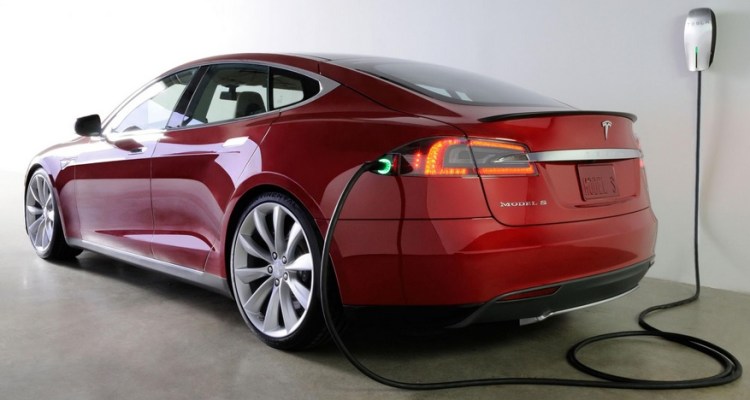When an unknown automotive startup from Silicon Valley unveiled an all-electric sports car with supercar performance back in 2006, the shock was enough to make industry giant GM sit up and pay attention.
That, plus the desire to gain some of the green halo seized by Toyota’s Prius hybrid, led GM’s then-product czar Bob Lutz to champion the development of the Chevrolet Volt range-extended electric car–and to protect it throughout GM’s bankruptcy and restructuring.

Above: 2014 Tesla Model S in China
So what does the gruff, jet-flying, cigar-smoking Lutz have to say about Tesla Motors today?
He thinks that the company will remain a “fringe brand” until it introduces its next generation of cars, the smaller and less expensive Model 3 currently planned for a late 2017 introduction.
Speaking Wednesday on CNBC’s “Squawk Alley” finance show, Lutz discussed Tesla CEO Elon Musk’s September 5 comment that Tesla’s stock price was “kind of high” at the moment.

Above: ‘Revenge of the Electric Car’ movie: Elon Musk and Bob Lutz
Lutz agreed with Musk, calling the stock “grossly overvalued” right now.
Then Lutz summarized his view of the company’s current situation:
When you look at it, their total production to date is still less than one day’s production of General Motors or Ford. So it’s filled with a lot of hype.
But they are going to have to do a next generation of car, which is smaller and with new types of batteries that give a range of two to three hundred miles.
And until they do that, it’s going to remain a fringe brand.
GM built 9.7 million vehicles last year, which works out to 48,500 vehicles a day over 200 production days–or 26,600 a day if you assume its plants worked all 365 days of 2013. (Ford’s total 2013 production was even lower, at 6.3 million vehicles.)
Tesla’s total production to date is likely somewhere between 50,000 and 60,000 cars–all but 2,500 of them the Model S five-door electric luxury sedan.
So Lutz is a little off on his math.
![Tesla Model X prototype in Culver City, California [photo by Instagram user jmtibs] [photo by Instagram user jmtibs]](http://images.thecarconnection.com/sml/tesla-model-x-prototype-in-culver-city-california-photo-by-instagram-user-jmtibs_100451932_s.jpg)
Above: Tesla Model X prototype in Culver City, California
The 2017 or 2018 launch of the Tesla Model 3 will be the next big inflection point for Tesla.
Accomplishing that launch will require the company’s gigantic battery “gigafactory” in Nevada to open on time and produce sufficient volumes of reliable, low-cost lithium-ion cells.
Meanwhile, however, it has yet to launch its multiply-delayed Model X crossover, now scheduled to go into volume production in the second quarter of 2015.
This story originally appeared on Green Car Reports. Copyright 2014


